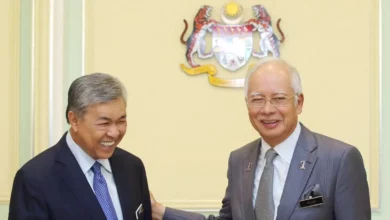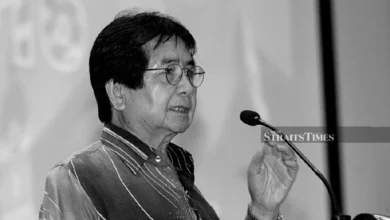‘I worry about my daughter’s fate’

KUALA LUMPUR: While women with children who are attending university look forward to their graduation and first day at work, 50-year-old Aniza Ismail worries about the fate of her eldest daughter, who is not a Malaysian citizen.
The thought of having to send her 21-year-old daughter away is giving her sleepless nights.
“She is now in university on a student visa. Upon completion of her studies, what reason is there left for her to stay here? She will have to leave the country,” said Aniza, a mother of three.
Her eldest was born in the United States to an Indonesian father. It is the same with her second child, who is now in Form Four.
“We came back in 2009 and my daughters were on social visas before they were on student visas when they reached 7.”
Aniza, a single mother, said her daughters’ school journey has been harsh compared with Malaysian citizens.
“They didn’t get to start their first day of the new schooling year like others, attend orientation or get free textbooks.
“Their admission was also subject to availability at the school,” she said after Sabeena Syed Jafer’s yasin recital and tahlil prayers hosted by the Family Frontiers and Muslim Youth Movement Malaysia recently.
Sabeena was one of the Malaysian mothers who had been fighting for their children’s citizenship before she passed away recently.
Aniza said she had applied for her daughters’ citizenship since they came back here.
“My applications were rejected three times. My fourth application is still in the process.
“I hope that my daughters will be granted Malaysian citizenship as soon as possible.”
On Sept 9 last year, the High Court declared that Malaysian mothers married to foreigners should be able to automatically pass on their Malaysian citizenship to their children born overseas.
However, on Sept 13, the government filed an appeal against the High Court’s ruling.
The Court of Appeal set June 22 to deliver its verdict on the appeal.
Ummal Remiza Khaja Mohideen’s first pregnancy ended in a stillbirth. When she got pregnant again in 2014, it was considered risky.
She could not fly back to Malaysia alone due to her condition and her Nigerian husband’s inability to apply for leave. So she gave birth in Qatar and hoped the Malaysian citizenship application for her child would go smoothly.
“She was 10 days old when I applied at the Malaysian embassy in Qatar. After four years of waiting, with many follow-ups and additional documents in between, we received a letter saying our application was rejected with no reason given.
“A year later, I appealed and am still waiting for the decision now,” said Ummal Remiza, 38, at the same event.
Afraid of facing a similar predicament, she was determined to deliver her two other children in Malaysia.
In 2018, she returned to Malaysia for good with her children, but her husband was unable to return, bound by a work contract in Qatar.
“Since our return, I have been travelling back and forth between Kedah and Putrajaya for my daughter’s visa extension and when she turned 7, I applied for her student visa.”
She recalled that throughout the process, she had been subjected to inappropriate remarks and questions by officers handling her child’s application.
“They asked me why I married an outsider and this was the consequence of my action.”
She said her eldest daughter faces unequal treatment here from education to healthcare, compared with her two other children, who are Malaysian citizens.
“I constantly worry about my eldest daughter’s fate.
“Who is going to work on her citizenship application when I, as her only guardian, am gone?”
Ummal Remiza said the government must lift the burdens off its citizens’ shoulders by immediately issuing citizenship documents to all children born overseas to Malaysian mothers.
The late Sabeena’s daughter, Niba Zaidi, said her mother had been fighting for their citizenship since their return to Malaysia in 2008.
“But our two applications were rejected without reason,” said Niba, the youngest of four siblings who were all born in Pakistan.
“She fought for us, but in end, she really couldn’t get anything.
“If the government continues to deny our rights (to citizenship), what will happen to us? Why should we leave Malaysia when this is our home?
“My mum is buried here and I want to stay here to be with her. This is my home, too,” she said, adding that her siblings were unable to attend the event because they were living abroad as they did not have citizenship.
Family Frontiers president Suriani Kempe said it was time the government gave equal rights to men and women.
“We hope that the decision will favour mothers and Malaysian women.”
NST




